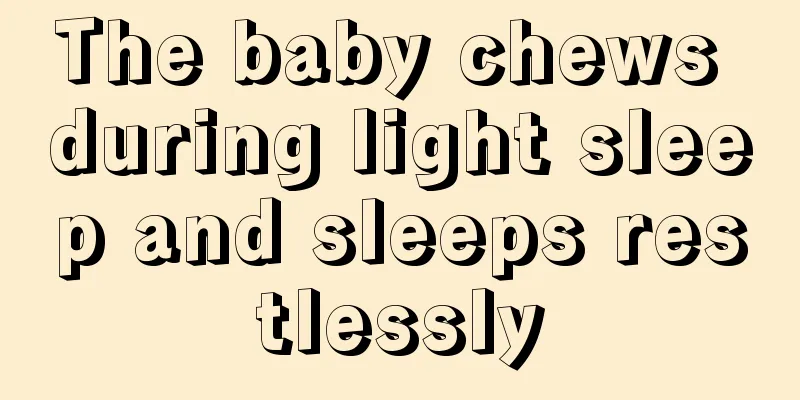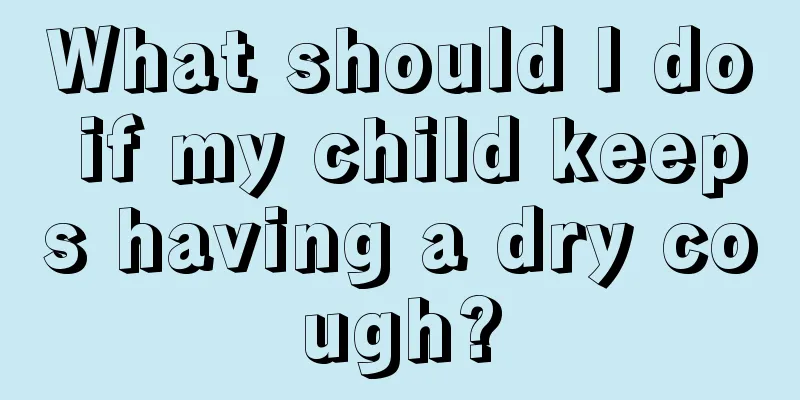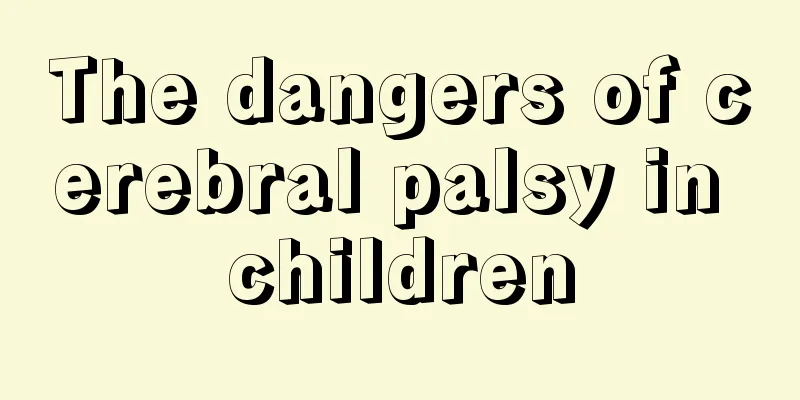How to judge whether the baby is calcium deficient

|
Babies have very strong growth potential, but only providing sufficient nutrition can help them grow. Some babies are prone to symptoms of calcium deficiency. So how do you determine if your baby is calcium deficient? Let’s talk about it below. Parents have always had misunderstandings, excessive worries, and even paranoia about calcium deficiency and calcium supplementation in children. There must be a basis for judging whether a child is calcium deficient, because the amount of calcium supplementation is not arbitrary, and the healthy growth of children requires scientific treatment. Calcium deficiency in babies Babies often have nails that break easily, cry before going to bed, and have bald spots on their pillows. Parents think these phenomena mean calcium deficiency. So how do you determine whether your baby is calcium deficient? The latest view on calcium supplementation in children For children, the latest view should be: if the mother is not calcium deficient during pregnancy, or if she has already supplemented calcium, and the child has no symptoms and signs of calcium deficiency when he is born, there is no need for calcium supplementation. Let's look at the food he eats, whether it's breast milk, formula milk, or complementary food (rice noodles or other foods), we can calculate whether there is enough calcium in the food. Calcium supplementation is not always better According to the standards recommended by the Chinese Nutrition Society, for babies aged 0 to 6 months, their daily calcium intake should be 300 mg, and for children aged 7 to 12 months, their daily calcium intake should be 400 mg. Children aged one to four years old should consume 600 mg of calcium per day, which is enough for them. If the baby's diet is sufficient, whether or not to supplement calcium depends on other factors. For example, do we take our children to enough outdoor activities, or do we provide them with vitamin AD supplements. The most direct and effective way to determine whether a child is calcium deficient is to take the child to the hospital for examination. In addition, you can observe from the following aspects: ●It is often manifested as excessive sweating, which is unrelated to temperature, especially sweating on the head after falling asleep, which causes the child's head to constantly rub against the pillow. After a long time, a bald circle can be seen behind the skull. ● Being irritable and not interested in the surroundings. Sometimes parents find that their children are not as lively as before. ●Night terrors, often waking up suddenly at night and crying incessantly. ●The forehead is high and protruding, forming a square head. ●Children over 1 year old show late tooth eruption. Some children still have no teeth at 1 and a half years old. The closure of the anterior fontanelle is delayed and often still does not close after 1 and a half years old. ● Beaded ribs are often seen. They are formed due to the hyperplasia of costal cartilage caused by lack of vitamin D. The cartilages of the ribs are connected together to form a shape like beads, which often compress the lungs, making it difficult for children to breathe and making them prone to bronchitis and pneumonia. |
<<: Beware of low immunity in children in spring, let your children eat several foods in rotation
>>: Where to massage when a child has a stomachache
Recommend
What are the precautions for children's autumn care
With the transition of each season, children with...
What are the symptoms and factors of endocrine disorders in babies?
Endocrine disorders, although not a big or small ...
How does amblyopia develop in children?
If your baby has amblyopia, it will pose a great ...
What to do if your 2-year-old baby has nose bleeding
There are many reasons for nose bleeding. Only af...
What to do if your baby vomits and has a fever
What should I do if my baby has a fever and vomit...
Introduction to feeding temperature for newborns
For newborns, correct care methods are the key to...
What to do if your child has conjunctivitis?
During the growth and development period, childre...
What is the best treatment for bronchitis in children?
Childhood bronchitis is very common in life, but ...
What is the treatment for redness and swelling after baby's vaccination?
Weak constitution is a physiological characterist...
Is it normal for babies to fart a lot?
Farting is a very normal thing, but in life, some...
Treatment cycle and related treatment methods for neonatal sepsis
The treatment cycle of neonatal sepsis causes our...
What is the reason for a child to have a fever and vomit?
In people's daily lives, some diseases will o...
Is it normal for children to sleep all the time when they have a fever?
It is inevitable that children will have a fever ...
Children cough with white tongue coating
The color and shape of the tongue can reveal a pe...
What to do if your baby has a fever in spring
The climate begins to gradually warm up in spring...









